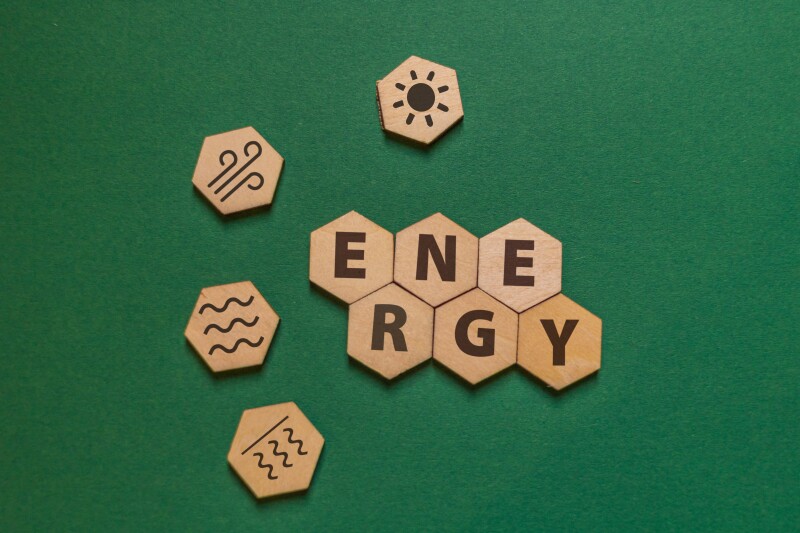In less than 3 years, we have been through a global pandemic, a war in Europe, economic depression across many Organization for Economic Co-operation and Development (OECD) countries, and the beginning of a wider energy transition, especially in developed countries.
All the above to different extents contributed to an energy crisis that highlighted the need to debate topics such as energy poverty, energy diversity, and energy security when discussing a just energy transition.
The best way I could find to wrap all the concepts is described by the World Energy Council (WEC) as the “energy trilemma.” It comprises a framework for understanding the challenges of energy security, energy equity, and environmental sustainability.
In their 2022 Index, the WEC defines energy security as the ability of a country to meet its current and future energy needs in a reliable and affordable way. Energy equity refers to the fair distribution of energy resources and services in a fairly priced way. Environmental sustainability refers to the use of energy in a way that mitigates and/or avoids potential environmental harm.
Being a student or a young professional in energy-related matters during these uncertain times might generate anxiety. At the same time, it creates the right opportunity to shape the debate based on data and facts, aiming to help the world to find the best possible solution going forward.
The energy trilemma is a complex challenge, and there is no easy solution that can be replicated in full in every single country. What Europe experienced in 2022 is just a taste of what around 2 billion people that live in energy poverty face every day. We must also remember that any policy applied in any country will have an impact across borders.
The world’s energy demand is growing which is putting a strain on resources. Most of this growth is coming from developing countries, where there is often less reliable access to energy. In addition, global energy supplies are becoming increasingly volatile, an example seen after the Russian invasion of Ukraine. This is making it increasingly challenging for countries that were already struggling before to ensure a reliable and affordable supply of energy. As a result, energy security in parts of the world has been negatively affected.
The challenges related to energy equity are no less evident. In a world of 8 billion people, there are around 2 billion lacking access to affordable, safe energy. By 2050, the world is set to reach a population of around 10 billion, necessitating a suitable mechanism that can provide access to affordable and reliable energy to everyone. This presents a major challenge for policymakers worldwide.
Lastly, environmental sustainability is vital. The use of energy, in particular from unabated fossil fuels, is a major contributor to greenhouse gas emissions. To address this challenge, countries need to think about a world less reliant on fossil fuels, hence there is a need for greater thinking about the role of renewables as a vital player in the energy transition.
As part of a fair and just energy transition, a complete move away from fossil fuels might initially seem to be the right solution for the UK. However, as seen in previous energy transitions, adaptation takes time and people’s behaviors are hard to change. Speeding up the energy transition will inevitably lead to a higher degree of risk, and it is key that, as young professionals in the energy industry (and therefore as future leaders of the sector), we understand what these risks are.
David Whitehouse, CEO of Offshore Energies UK, noted to Sir Keir Starmer, leader of the Labor Party, the need for caution around a rapid transition away from oil and gas, given the UK still relies heavily on hydrocarbons in a number of areas. For example, around 75% of the UK’s total energy consumption is provided by oil and gas, 24 million UK homes rely on gas boilers for heat and hot water, and the nation has 32 million vehicles running on petrol or diesel. In addition, around 42% of the UK’s electricity comes from gas-fired power stations.
The energy trilemma is very complex. A shift to renewables would require changing a huge percentage of UK homes away from gas boilers, the automobile market, and much of the UK’s energy infrastructure and design.
In one way or another, the UK’s offshore industry supports the country’s economic wellbeing, providing more than 200,000 skilled jobs. In 2022–2023, this added over £20 billion (more than $214 billion) to the economy and paid around £11 billion (roughly $11.7 billion) in taxes.
To mitigate these factors, the energy transition must involve a wide range of policies and strategies that assess all key risks involved.
For example, the UK has had success in diversifying its energy mix to some extent. Renewables, in particular wind power, are becoming increasingly cost-competitive with fossil fuels, in part due to the support the government has given at the inception of the technologies in the previous decade and to renewables support efforts such as Non-Fossil Fuel Obligations (NFFO), Renewable Obligations (RO), and Contracts for Difference (CFD). Investing in renewable energy can help to reduce greenhouse gas emissions, improve energy security, and Increase energy diversity.
Improving energy efficiency and promoting conscious energy consumption are other ways to tackle this challenge. Energy efficiency measures, such as insulation and energy-saving appliances, can help to reduce energy demand. Creative campaigns can lead to more conscientious energy consumption, especially during high demand months.
Although the electrification of everything might seem appealing at this point, we should not be blind to some of the risks that this presents. Diversity matters and the impacts of the chain might be examined in the reliance of the energy transition on the mining sector for example.
Large-scale energy storage backup using batteries might become a game changer. However, as a technology it is has not yet been tested at an envisaged scale. Given the potential reliance on battery storage in the EU, which plans to be Net Zero by 2035, and challenges related to the supply of critical raw materials, as alerted by the EU’s financial watch dog, this may come back to bite policymakers. Therefore, the UK has broadly been successful in building up wind and solar assets on its journey to diversify its energy sources. In 20 years, renewables jumped from less than 1% to ~20% in 2022 mainly replacing coal-fired power generation.
A complete energy transition ahead of us is undoubtedly challenging and demands that all risks, opportunities, and costs are assessed and displayed in a clear and open manner to the population.
Our role as young energy professionals is to come to the debate with data and facts, in a way well informed decisions are taken. After all, we are the ones that will deal with the consequences of the decisions that are now being made.
For Further Reading
World Energy Trilemma Index 2022, World Energy Council.
Recommendations of the Global Commission on People-Centred Clean Energy Transitions, IEA.
Championing the African Energy Transition by A. Knott. Savannah Energy.
World’s Population Will Continue to Grow and Will Reach Nearly 10 Billion by 2050 by E. Suzuki. World Bank Blogs.
The 200-Year History of Mankind's Energy Transitions, World Economic Forum.
Labour’s Energy Day: We Need Policies That Build on our Strengths, not Undermine Them, Says Offshore Energies UK, Offshore Energies UK.
An Efficient Energy Transition: Lessons From the UK’s Offshore Wind Rollout, Tony Blair Institute for Global Change.
EU Could Fall Short of Net-Zero Goals due to Insufficient Battery Production: Study, S&P Global.
United Kingdom: Energy Country Profile, Our World in Data.


